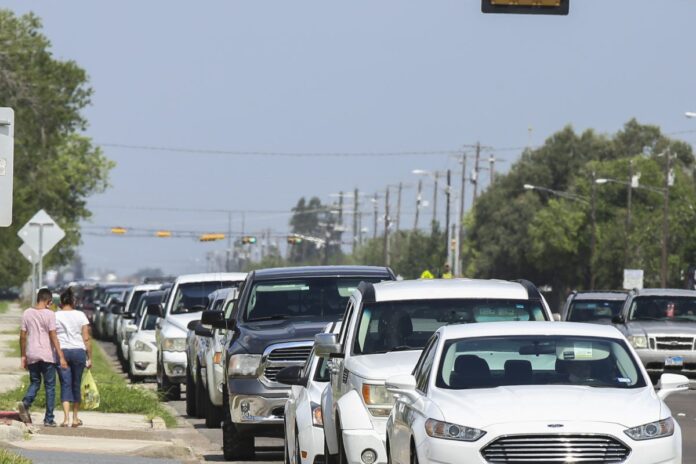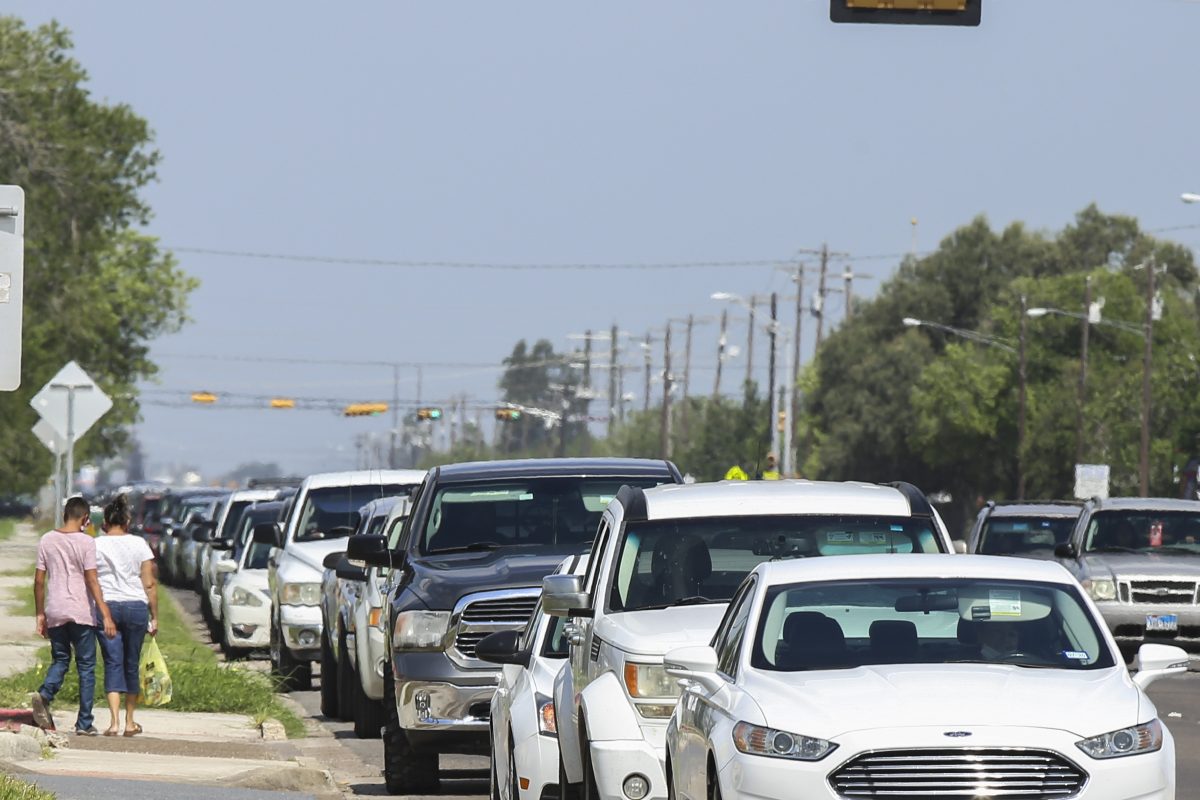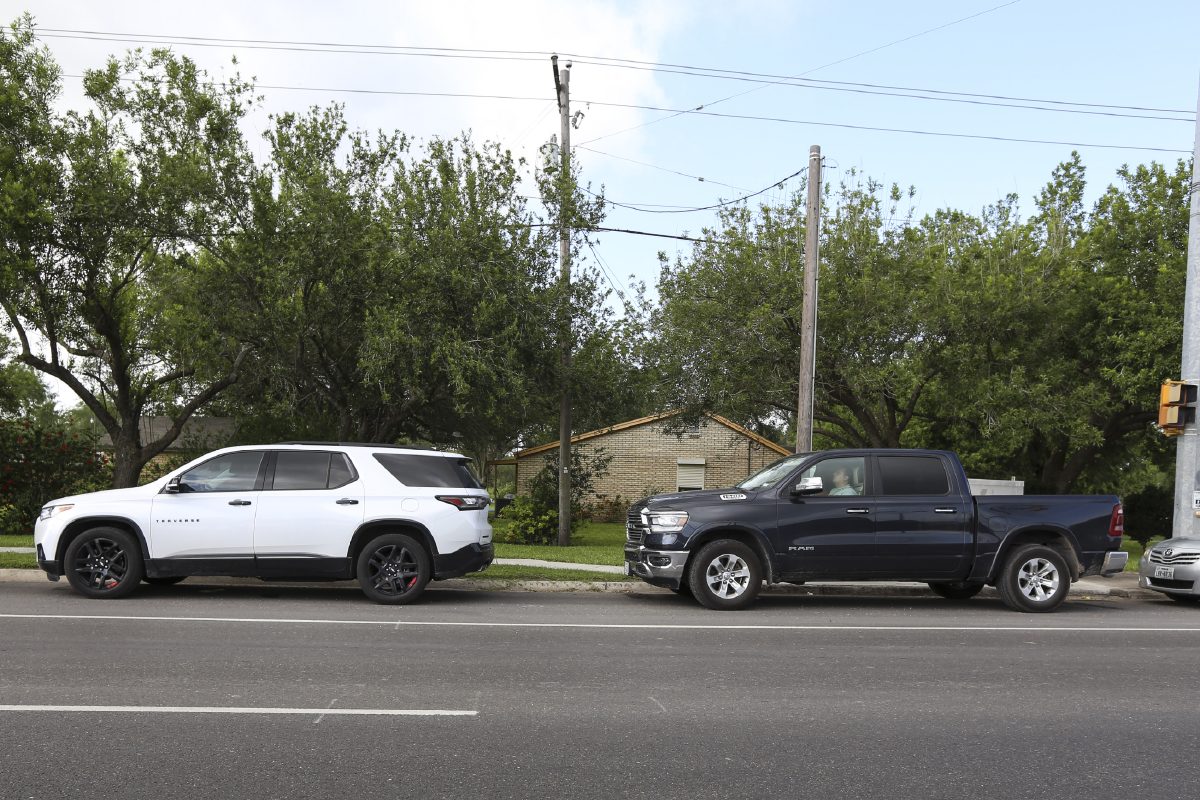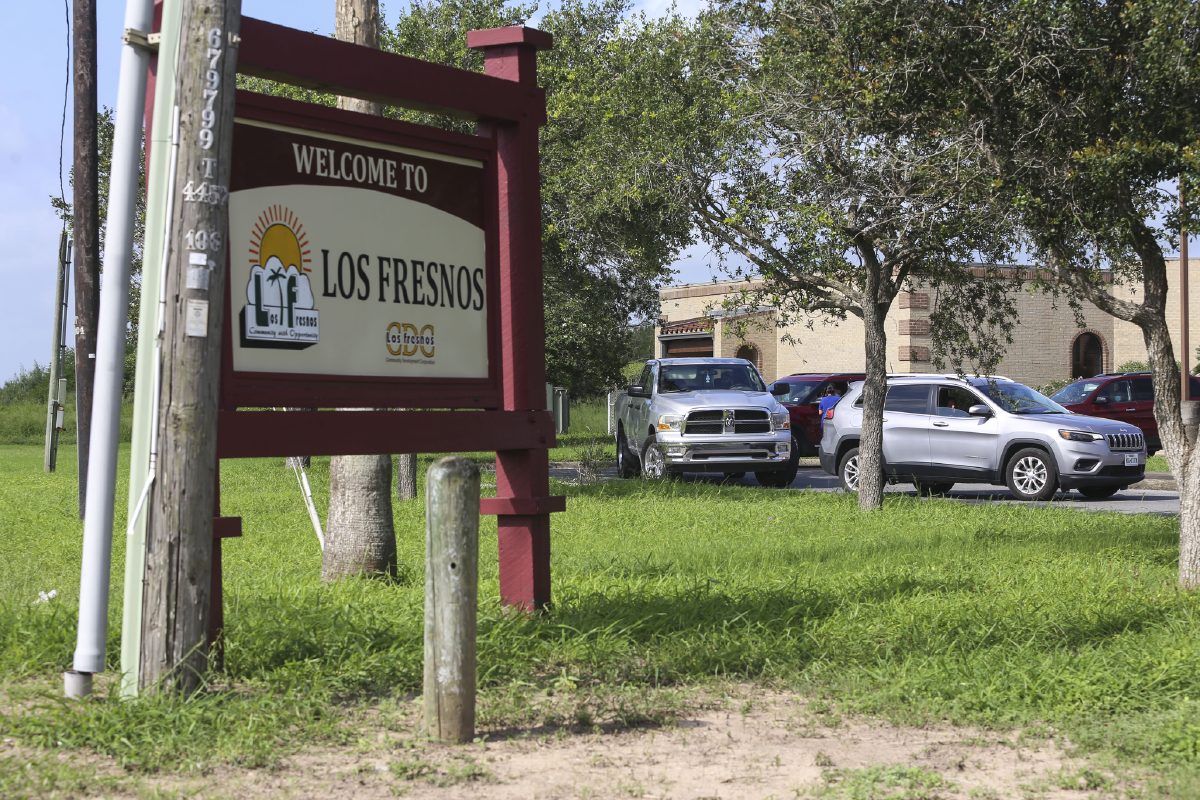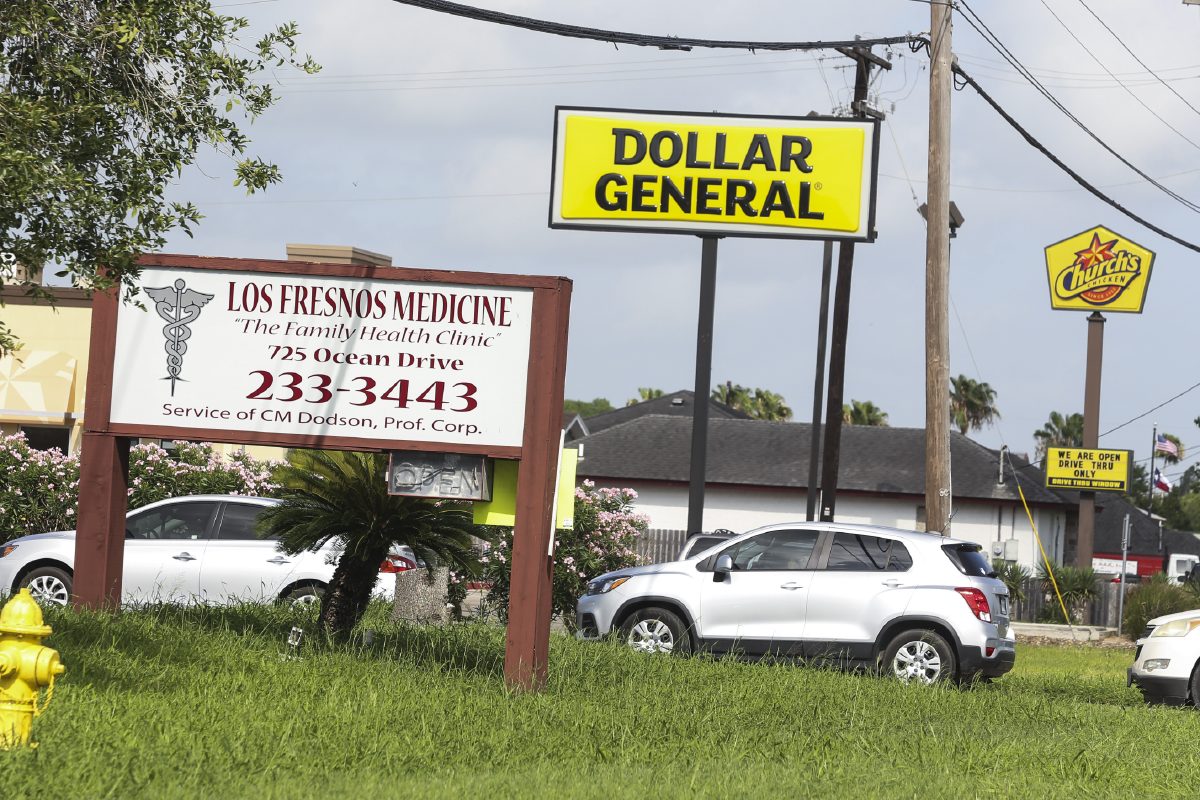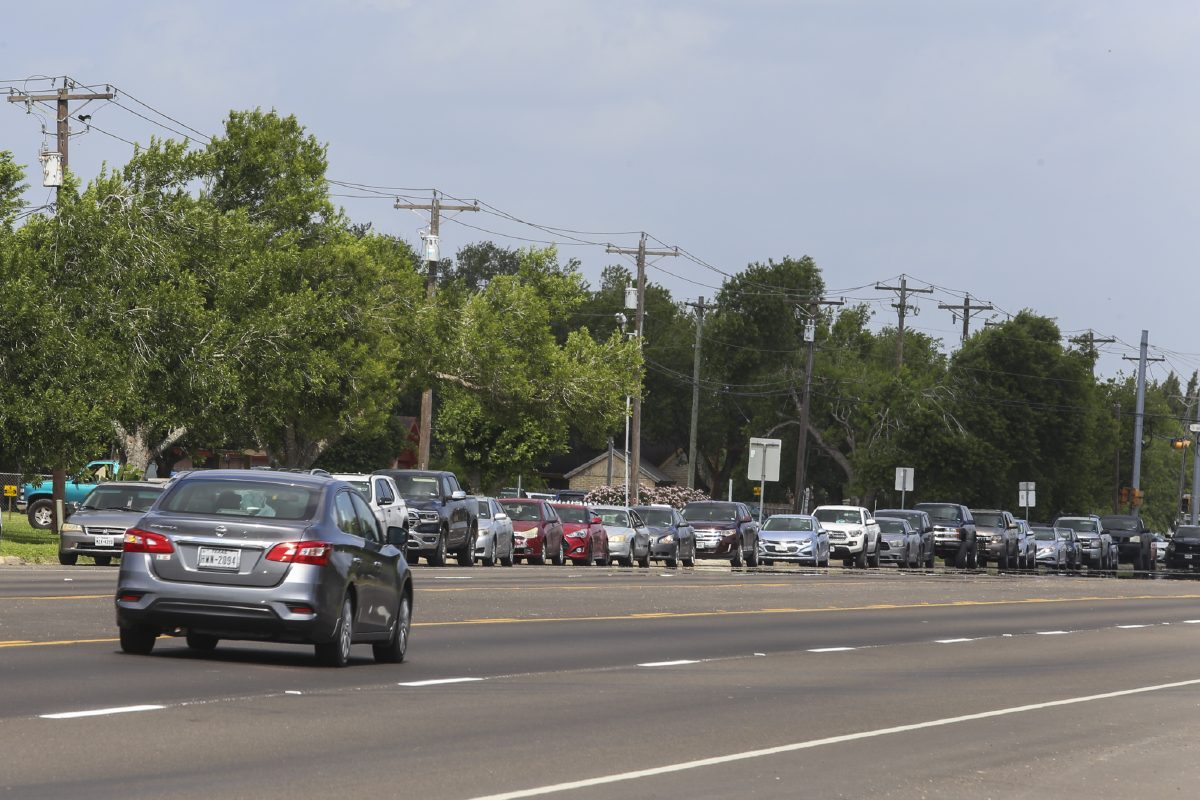Cameron County officials on Monday reported over 100 new coronavirus cases, bringing the county’s total positives to 1,647. Of that figure 1,002 of those individuals have recovered, but as Dr. James Castillo warned at a county press conference earlier this week, ICU beds are almost at capacity and officials tasked with slowing the spread are asking everyone to do their part.
That might mean social distancing, proper hand sanitation and washing, and regularly cleaning buildings, vehicles, and homes. But what if you can’t get tested?
This is a question on the minds of many as staff at the three publicly available and free COVID-19 testing options in Cameron County work to keep up with thousands of daily calls, emails, and screening forms for testing appointments.
On Tuesday, Brownsville residents reported over 100 cars in line for testing at Los Fresnos Medicine in Los Fresnos. One witness estimated the line to be around a mile long. The practice confirmed on Tuesday that they began offering antibody testing and had received a huge response.
University of Texas Rio Grande Valley officials said those who fill out screening forms will be tested within about 72 hours. Staff at UTRGV has been answering an estimated 6,000 calls a day on top of emails and screening forms. Some callers have been unable to reach available hotlines through both the university and the county due to increased traffic.
In Brownsville, testing is being offered at the Sports Park in collaboration with the City of Harlingen. The city didn’t respond to an interview request regarding this story as of press time.
Local officials tasked with responding to the pandemic have their hands tied, said U.S. Rep. Filemon Vela, D-Brownsville, on Tuesday. Vela and aides explained how $11.2 billion in federal funding allocated to the State of Texas through the CARES Act, intended to ramp up testing through local governments, is being mostly withheld by Gov. Greg Abbott.
“Abbott is complicit in this catastrophe,” said Vela in a phone call. Of the roughly $8 billion Abbott was allocated to distribute across the state, he could take a proportionate amount of that, say $2 billion, and shore up funding given to municipalities for testing. Instead, the governor is opting to severely limit the money’s distribution.
Vela alleges that Abbott is holding onto the money and forcing local units of government to go and prove how it’s getting spent.
While the U.S. House was negotiating the HEROES Act, Vela’s office advocated for a rule that will release money straight from the federal government to local cities and counties, bypassing Abbott’s office, hopefully allowing for mass expansion of testing despite inadequate response from the state and federal governments.
Vela said the $1 trillion proposed stimulus package will likely shrink significantly when handed off to the Senate, but noted that even $350 to $400 billion in funding could make a huge difference locally. “The fact is that the Trump administration has totally abdicated their responsibility,” he said.
Under the proposed version of the HEROES Act, Cameron County would see $158,651,067 in COVID-19 response funding in 2020 and an additional $79,325,533 in 2021, according to a chart compiled by House Speaker Nancy Pelosi’s office, which Vela’s office then broke down at the local level. Each city would receive funding. For example, Brownsville would see $129,885,770 in 2020 and $64,942,885 in 2021, while Harlingen would see $42,447,424 in 2020 and $21,223,712 in 2021.
In an effort to assist cities and counties, the office has been working with elected officials, hospitals, and testing staff on a solution. Vela said local officials hope to have a formal template developed to get a handle on the spread within the next week. Vela cited Abbott’s remarks that the surge in cases — reported to be over 6,000 statewide on Monday — is “unacceptable” while simultaneously refusing to make masks mandatory.
“It’s really kind of nice to say the higher rates are unacceptable, but if you’re not doing anything about it, that doesn’t do us any good,” he said.
While mask and social distancing requirements like those mandated in Cameron and Hidalgo counties last week are important, expanded testing capacity is going to be necessary to control this wave of coronavirus.
Currently, the Texas Military Department is operating county-coordinated testing. Staff can test 100 to 120 people per day. According to Cameron County Public Information Officer Melissa Elizardi, mobile testing has now been extended through June 28.
As cases surge, the county has plans to continue making that testing available. “As of this morning, there had been 23,000 lab tests administered throughout the county. We need these tests available. That’s why we’ve extended it these three to four additional weeks. We also tried to work hand in hand with making these tests free,” Elizardi said.
Asked about asymptomatic carriers, she said because testing resources through the state are limited, the tests that are available need to be reserved for those who have symptoms so as not to expand the bottleneck. She encouraged residents with primary care physicians and health insurance to seek out private testing if possible.
“Of course, we would like to have more testing available. We’re just trying to have all these things in place to save lives if we can,” she finished.
At UTRGV, Executive Director for UT Health RGV Michael Patriarca explained how the university is now processing samples from across the state as part of a lab network. “As the state expands capacity, we would be one of the labs that’s running samples,” he said.
On Monday, the lab had it’s highest day, processing 700 samples from the Valley alone. As for call center staff, UT Health RGV is hoping to nearly double its 16 to 17 person workforce and has positions posted online. “It was 7 to 10 days ago where we really started to see an uptick, tripling from about 1,500 to 2,000 calls a day to over 6,000,” said Patriarca.
“We’re going as late as 10 p.m. and we’re considering adding an overnight shift just to answer emails and online forms. We’re already working the weekends, too. All that we can expand, but you can’t expand that without testing capacity. They go hand in hand.”
At the drive through locations, staff has been able to test about 400 to 500 people per day, which is double where the university was at last week. Another limiting factor is the heat, forcing staff to close shop around 2 p.m. to avoid the hottest part of the day.
UTRGV is testing only those who are symptomatic, as well, and has enacted other measures like creating more drive through lines to streamline the testing process as it can.

